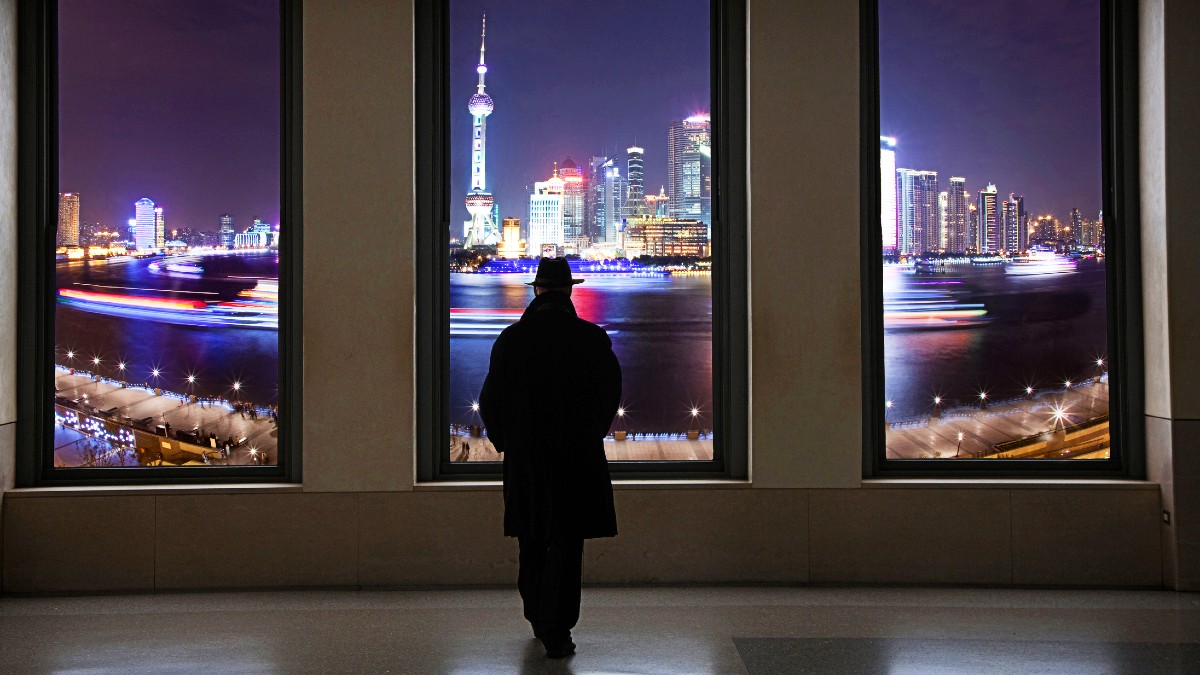Five Eyes go public over ‘brazen’ China threat, as ASIO chief reveals ‘spymaster’ plot foiled at top Aussie institute

Via Getty
For the first time in their clandestine history, the intelligence leaders of the Five Eyes countries (Australia, Canada, the UK, USA and New Zealand) have gathered together in public.
The habitually secretive quintet called the press and had a photo-op get together at the Five Eyes summit at Stanford Uni, California for a public discussion of threats and emerging technology, to launch the Five Principles but mainly to call out the unhooked dangers posed by unprecedented Chinese espionage.
FBI director Christopher Wray used the word “unprecedented” an unprecedented number of times saying that China’s fingerprints were all over every possible technological advantage – from quantum mechanics and computing, robotic warfare to biotech, space defence and of course artificial intelligence.
“[This] unprecedented meeting is because we’re dealing with another unprecedented threat, and there is no greater threat to innovation than the Chinese government. And it is a measure of how seriously the five of us and our services take that threat that we have chosen to come together to try to highlight that and raise awareness, raise resilience, and work closely with the private sector to try to build better protection.”
Wray said China was, has and is stealing, copying and revelling in top secret developments in almost every sector.
“China has long targeted businesses with a web of techniques all at once: cyber intrusions, human intelligence operations, seemingly innocuous corporate investments and transactions,” Wray said.
“Every strand of that web had become more brazen, and more dangerous.”
According to an incredibly detailed and considered report released this week by ASPI, the Chinese Communist Party (CCP) has honed its surveillance techniques by using technology at home.
The CCP operates a society-wide system of tech-enhanced authoritarian governance, facilitated by a sophisticated online censorship apparatus and internet-linked physical surveillance devices. In addition to online repression and surveillance, the PRC has become the world’s primary case study of so-called ‘techno-authoritarianism’, as the CCP increases its grip on power through an expanding and near-ubiquitous physical and digital surveillance apparatus. Chinese cities are covered by the highest number of CCTV surveillance cameras in the world.
Police agencies make intensive use of facial recognition to monitor human behaviour, link people’s digital identities with their physical movements through specific devices, and collect DNA, voice prints and iris scans into large-scale databases. Efforts are underway to centralise and better analyse all the data collected. The surveillance apparatus now blankets the whole country, but there are differences in intensity and deployment between regions.
For example, the Xinjiang Uyghur Autonomous Region in western China has long been subject to party-state authorities’ crackdowns aimed at repressing and culturally assimilating the local Muslim minorities. That has included a brutal arbitrary detention system and the institution of a more intense surveillance system across the region.
Surveillance, ASPI says, has become integral to the way the party-state operates and governs.
The security chiefs from the Five Eyes nations – Australian Security Intelligence Organisation (ASIO) director-general Mike Burgess; British Security Service (MI5) director general Ken McCallum; Canadian Security Intelligence Service (CSIS) director David Vigneault; New Zealand Security Intelligence Service (NZSIS) director-general Andrew Hampton and US FBI director Christopher Wray – shared the stage at the Hoover Institution at Stanford University, to launch five principles businesses should embrace to protect themselves against threats to their IP.
Mi5’s boss (unfortunately not called ‘M’), Ken McCallum said, ‘across all five of our countries we are seeing a sharp rise in aggressive attempts by other states to steal competitive advantage.’
“This contest is particularly acute on emerging technologies; states which lead the way in areas like artificial intelligence, quantum computing and synthetic biology will have the power to shape all our futures. We all need to be aware, and respond, before it’s too late.
“So today we’ve jointly bolstered security across our five nations by offering practical steps organisations can take to keep themselves safe,” he added.
An audience of one
While the very public get together was aimed at all nation-state-backed hackers, it was clearly designed with Chinese cybercriminals in mind.
Speaking to reporters, ASIO boss Mike Burgess said this was because of the size and unique of the threat posed by Beijing’s hacking army.
ASIO director-general Mike Burgess got right into it – directly calling out China’s “ruthless business model” which he suggested was a mixture of theft and espionage to gain a global advantage.
The ASIO director-general went so far as revealing an espionage threat which was thwarted at a top (unnamed) Australian research institution, with the academic enlisted by a Chinese ‘spy master’. Burgess also levelled accusations at Beijing over accusations of blatant theft of intellectual property.
“The Chinese government is engaged in the most sustained, scaled, and sophisticated theft of intellectual property and expertise in human history,” Burgess said at a media briefing.
“It’s unacceptable. It’s unprecedented.”
Busting the professor
Burgess went on to describe that only last month, the Chinese plot to infiltrate ‘a prestigious Australian research institution,’ was disrupted by ASIO, alleging that the visiting professor had been recruited by Chinese intelligence operatives.
“Their spymaster gave them money and a shopping list of intelligence requirements and sent them to Australia,” he said. “The academic even set his Australian PhD students research assignments in line with his intelligence requirements.”
ASIO contacted the institution and “intervened and removed that academic from our country before the harm could be done”.
“This sort of thing is happening every day in Australia as it is in the countries here,” he said at the Five Eyes gathering.
“We will meet and defeat this threat because we have a weapon that others don’t: the power of partnerships.”
Albo left to hold the can
The puissance of partners will be of little comfort to the PM, Anthony Albanese, who’s got a fast-approaching date with China’s President Xi Jinping in Beijing.
Albanese has been left with a mountain of work and broken bridges to repair before relations with our biggest trading partner are anywhere near where they once were.
Responding to what impact his allegations could have on Sino-Aussie ties, Burgess said it won’t stop the ongoing bilateral engagement.
“China’s success has been of great benefit to Australia.” But most importantly as the top spymaster he also had “some latitude in saying what I need to say as part of my job”.
Albanese has made a point of saying Australia would cooperate with China where it could and disagree where it must.
“This is one example where we’re calling out something where we must disagree,” Burgess added.
China back on the radar
China’s economy grew by 4.9% in the third quarter, year on year, and by 1.3% on the previous three months, encouraging data released on Wednesday showed.
Meanwhile, new research out of the Curtin University Bankwest Curtin Economics Centre suggests bilateral trade helped each Australian household earn an extra $2,500 (US$1,589) in the last financial year, equal to 4.5% of disposable income per person.
The study, commissioned by the Australia China Business Council (ACBC), suggests Australia-China trade offers measurable benefits to the average Australian household ‘through the channels of increased employment, higher income and lower prices,’ said co-author and CEC director Alan Duncan.
This week, the Australian journalist Cheng Lei has been returned from three years of Chinese detention, while the Trade minister, Don Farrell has been agitating to strike a deal to put an end to Beijing’s punitive tariffs on Australian wine, hoping for a similar solution which led to the resumption of barley exports.
A Chinese government spokesman Liu Pengyu said the country was committed to intellectual property protection.
“We firmly oppose to the groundless allegations and smears towards China and hope the relevant parties can view China’s development objectively and fairly,” the spokesperson for China’s embassy in Washington said in a statement to Reuters.
Related Topics
UNLOCK INSIGHTS
Discover the untold stories of emerging ASX stocks.
Daily news and expert analysis, it's free to subscribe.
By proceeding, you confirm you understand that we handle personal information in accordance with our Privacy Policy.








